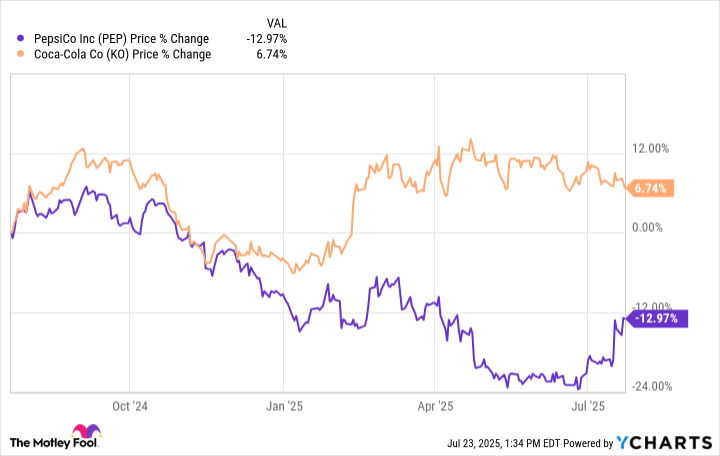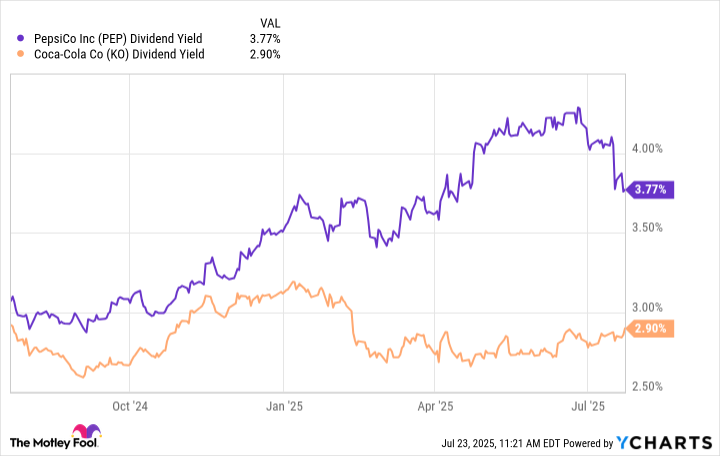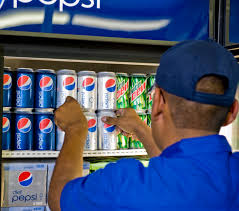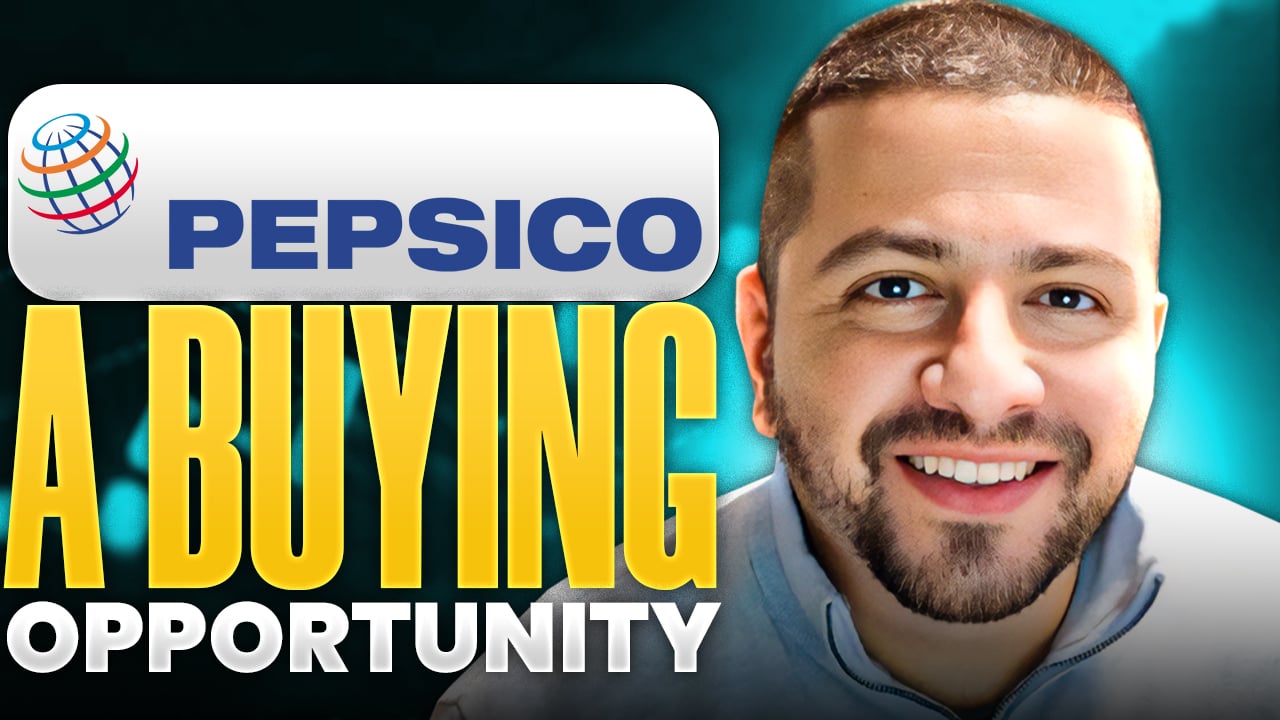Although earnings season has barely started, both PepsiCo (PEP +0.14%) and its archrival, Coca-Cola (KO +1.41%), have already reported earnings for the second quarter of 2025. The waning popularity of soda beverages and, in PepsiCo's case, the falling demand for snack foods, have translated into anemic growth for both companies.
One thing to remember about both stocks is that they have become popular among dividend investors, each maintaining a record of annual dividend hikes for more than half a century. Amid such conditions, one beverage stock may ultimately stand out as a more suitable choice for most investors.

Image source: Getty Images.
Comparing the two businesses
Although a flagship cola product defines each stock, both companies are diversified beverage holdings. Each controls numerous brands under their umbrellas, and their selections encompass juices, coffees, teas, and waters.
Additionally, both companies are now in the alcohol business. Coca-Cola entered this arena by offering Topo Chico hard seltzers, and PepsiCo has partnered with other companies to sell branded beverages like Hard Mountain Dew and Lipton Hard Iced Tea. Additionally, as previously mentioned, PepsiCo is in the snack business, owning such packaged food brands as Frito-Lay and Quaker.
Unfortunately for both companies, a nutrition-inspired pivot has impacted sales, and this is particularly true of PepsiCo, whose customers are increasingly seeking healthier snack options.
To that end, both companies have agreed with the Trump administration to produce cane sugar versions of their flagship colas, as more consumers turn away from high-fructose corn syrup.

NYSE: KO
Key Data Points
How the numbers compare
However, such initiatives have not yet translated into higher sales. Furthermore, healthier ingredients often cost more, which will inevitably lead to higher input costs. As a result, both companies reported Q2 revenue increases of 1%, with price increases offsetting a slight drop in sales.
From there, the results diverge, at least initially. Coca-Cola's Q2 net income was $3.8 billion, up from $2.4 billion in the year-ago quarter. Other operating charges fell from almost $1.4 billion in Q2 2024 to just $71 million one year later, accounting for nearly all of the improvement.
In contrast, PepsiCo's $1.3 billion in Q2 net income was down from $3.1 billion 12 months ago. Still, if not for the $1.9 billion impairment charge on intangibles, net income would have narrowly increased. Thus, without one-time charges, the results seem to closely approximate each other.
Even with their numerous similarities, Coca-Cola's stock has outperformed PepsiCo's over the previous year.
However, that outperformance does not necessarily make Coca-Cola the clear choice, even though Coca-Cola's P/E ratio of 28 is not significantly higher than PepsiCo's 27 earnings multiple. When comparing forward P/E ratios (which exclude one-time charges), PepsiCo's 18 forward price-to-earnings ratio is considerably lower than Coca-Cola's, a stock which trades at a forward P/E ratio of 23.
Furthermore, PepsiCo may stand out with dividend investors. Both stocks are Dividend Kings by virtue of their long-established track records of annual payout hikes. Still, PepsiCo's dividend yield of almost 3.8% far outpaces Coca-Cola's at around 2.9%, arguably making PepsiCo a better fit for income investors.
PEP Dividend Yield data by YCharts

NASDAQ: PEP
Key Data Points
Coca-Cola or PepsiCo?
As for which stock to choose, investors do not have a bad choice in the sense iconic brands will likely drive rising sales for both companies for years to come. However, if you're buying today, PepsiCo appears to offer a slight edge to shareholders.
Admittedly, both stocks have offered growth and income to their long-term investors, and that is unlikely to change. Also, Coca-Cola's more recent outperformance may tempt investors to choose it.
Nonetheless, both are mature, slower-growth companies, and that makes PepsiCo's attributes stand out.
For one, since PepsiCo operates in both the beverage and snack industries, it offers a greater degree of revenue diversification. Also, while financial results appear similar in most respects, PepsiCo's forward P/E ratio suggests it is the lower-cost stock after factoring in one-time charges.
Finally, thanks in part to a lower valuation, PepsiCo offers investors higher dividend returns. Since investors tend to buy these stocks for income, PepsiCo is probably the more suitable choice in most cases.







